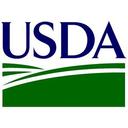Training fuel distributors on increased biodiesel blends
April 2, 2014
BY Ron Kotrba
Recent balloting efforts to change ASTM D396 to include higher blends of biodiesel, from B6 to B20, are creating the need for further education regarding proper handling and use of blends above 5 percent. Findings from Brookhaven National Laboratory show B20 and lower blends are acceptable for use in existing burners and boilers. Also, many OEMs already approve B20 in their vehicles, for which an ASTM spec was approved several years ago (D7467).
To provide much-needed education for some, and a refresher course for others, a comprehensive webinar, “Getting the Most from Your National Supply Chain from Production to Consumption,” has been developed by Paul Nazzaro, the principal at Nazzaro Group and petroleum liaison to the National Biodiesel Board, and Jeff Fetkenhour, president of Gorge Analytical.
To allow for scheduling flexibility, the webinar will be held on four dates over the next two months: April 10, April 17, May 22 and May 29, all beginning at 1 p.m. Eastern Time, scheduled to conclude at 2 p.m.
The webinar is designed to provide clarity to those in the distribution network on the intricacies of blending biodiesel into distillate fuel, Nazzaro tells Biodiesel Magazine. While distributors may be in tune with individual fuel specifications as they stand alone, a knowledge gap may still exist when 5, 10 or 20 percent biodiesel is added. How is cold flow impacted? What about stability? What are good tank management practices? “There’s still a lack of clarity on what happens when you bring all of these fuels together into one final product that will be combusted in an engine or oilheat burner,” Nazzaro says.
The webinar will reveal how diesel, heating oil and gasoline products are manufactured, stored, blended and shipped to market.
Supply chain management in the petroleum industry contains logistics challenges that don’t exist in most other industries—a major influence on the cost of oil and its derivatives. Opportunities for cost savings in logistics, however, still do exist.
Risk managers are charged with the responsibility to ensure their positions are protected, and that the company generates the maximum value out of every barrel acquired, processed and sold. To achieve this, they are trained and continue to educate themselves on all aspects involved.
For those handling fuel and responsible to ensure every gallon that goes through the rack meets or exceeds ASTM specifications, this training event will deliver results. The supply chain is anything but static; every product move necessitates attention so that end-users have a successful experience with the fuel they purchase.
Additional questions that will be raised and answered include:
-What does proper handling look like?
Advertisement
Advertisement
-What does good fuel quality look like?
-What does improper handling look like?
-What are the consequences of improper handling?
-How do you recover from improper handling?
-How do you promote proper handling?
-Does biodiesel feedstock make a difference?
-How do you exist with today’s 2 micron filter?
Advertisement
Advertisement
-How long will your fuel stay stabilized, and what can you do to ensure that it does?
-How do you know your fuel will meet low-temperature conditions with confidence?
The webinar will cover a variety of industry issues and it will lay out a comprehensive, but easy-to-follow, 10-step prevention plan to ensure distributors and end-users enjoy the best possible experience with biodiesel.
To register for the free webinar, click on one of the links below.
Related Stories
Montana Renewables LLC has delivered its first shipment of 7,000 gallons of SAF to Dearborn, Michigan's Buckeye Pipeline facility. From there, the fuel will be transported to the Detroit Metropolitan Airport via pipeline for use by Delta Air Lines.
NYC took a monumental step towards clean air and a sustainable future on Jan. 11 with the grand opening of the city's first retail fuel station dispensing renewable diesel. The project is a collaboration between Sprague and Sonomax.
The USDA on Jan. 11 awarded $19 million under the Higher Blend Infrastructure Incentive Program. The grants will support projects in 22 states to expand the availability of higher ethanol and biodiesel blends.
Jet Aviation partners with World Fuel Services to offer SAF in Bozeman, Montana, and Scottsdale, Arizona
Jet Aviation announced on Dec. 22 that it has signed an agreement with World Fuel Services to secure and offer sustainable aviation fuel (SAF) on-site at its FBOs in Bozeman, Montana, and Scottsdale, Arizona, effective immediately.
Neste has partnered with Coleman Oil Company, a leading provider of fuels, biofuels, lubricants, and related products, to enable cities and businesses to have easier access to Neste MY Renewable Diesel in the state of Washington in the U.S.
Upcoming Events










